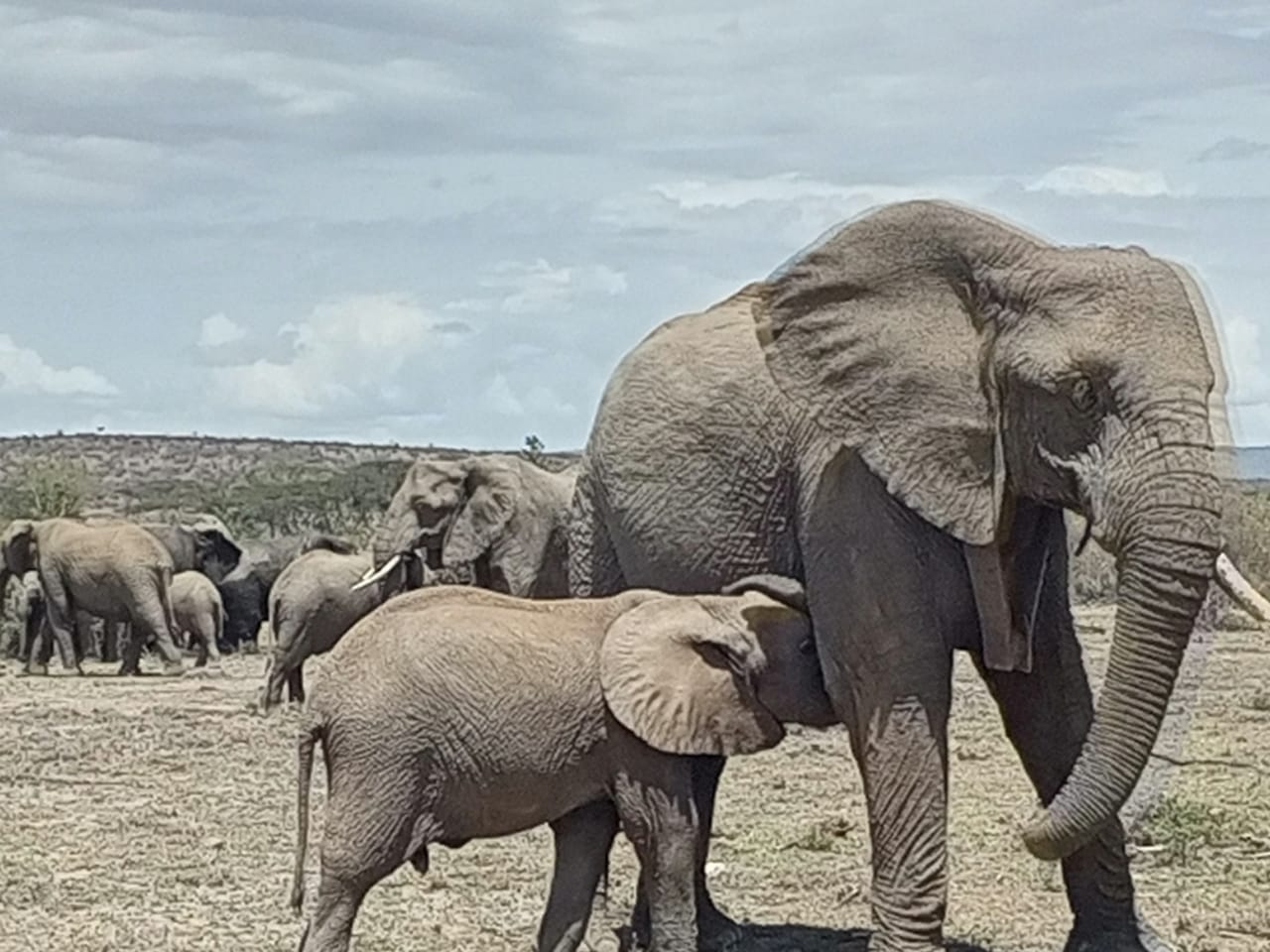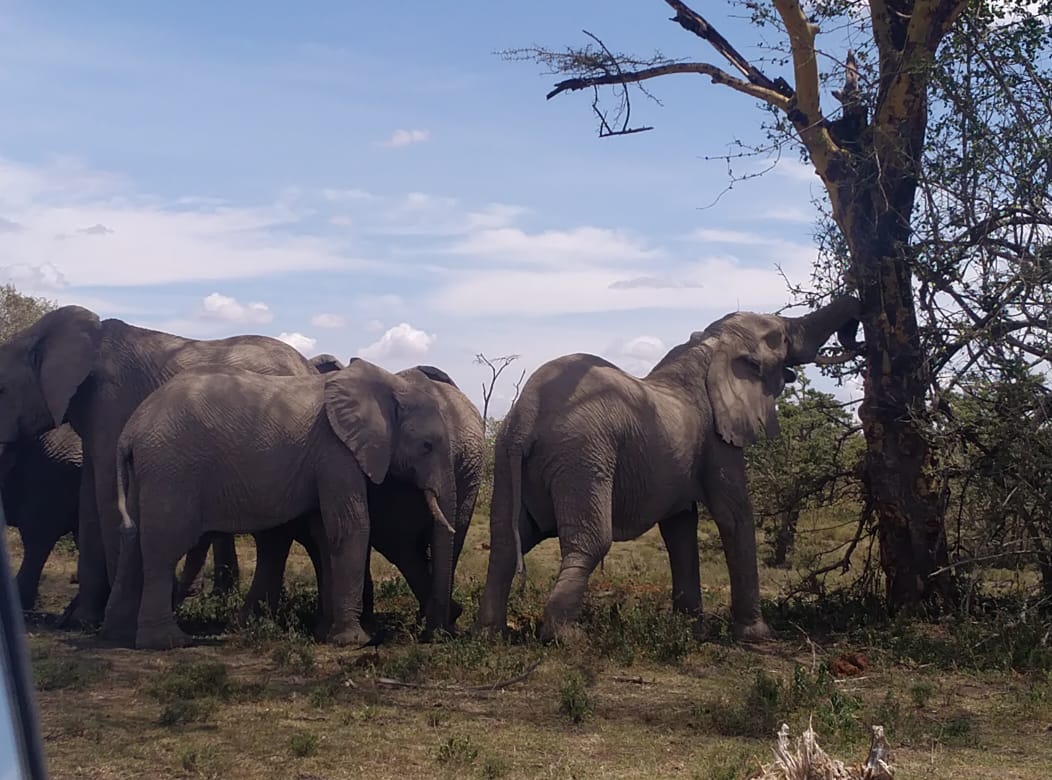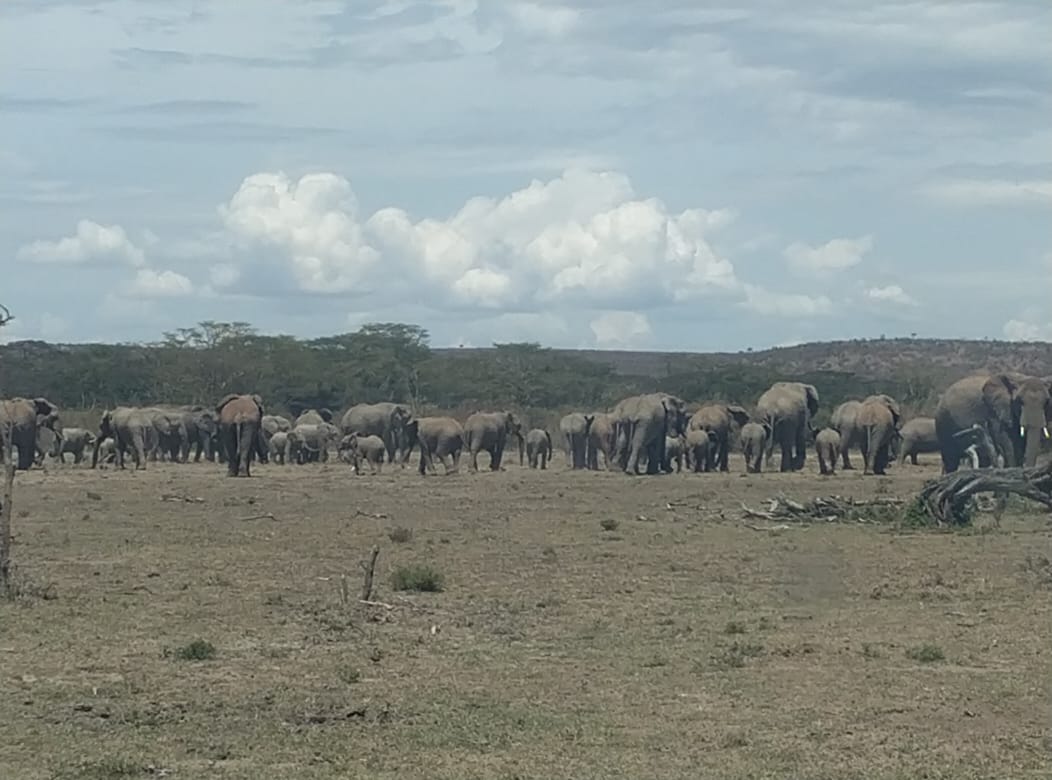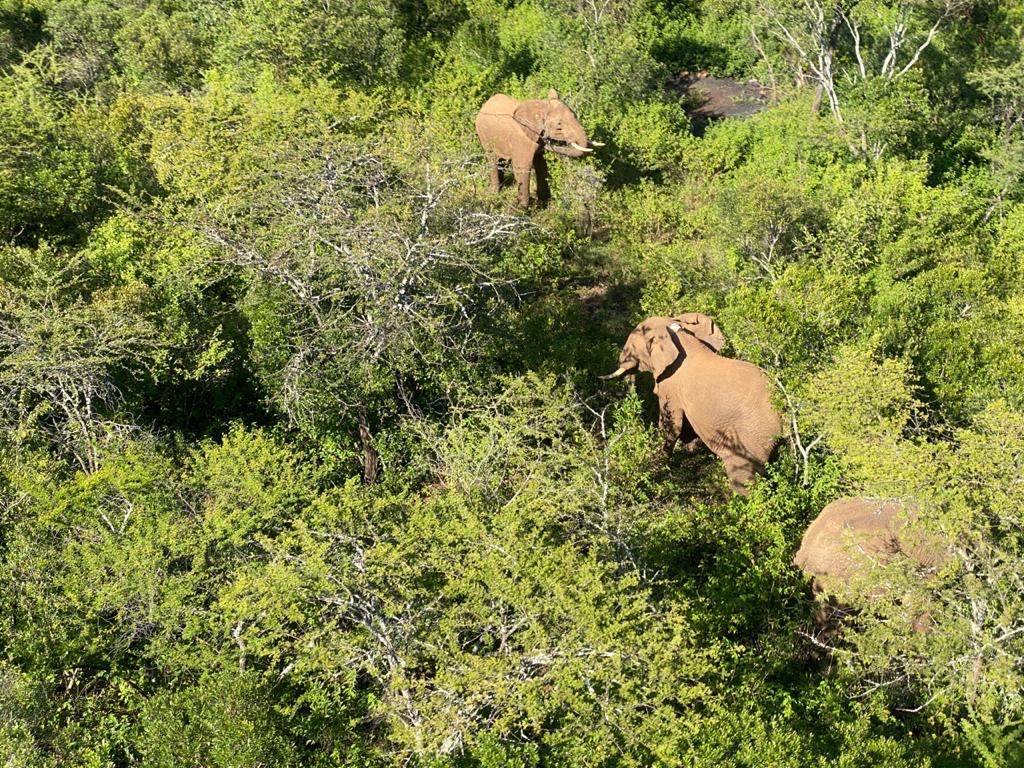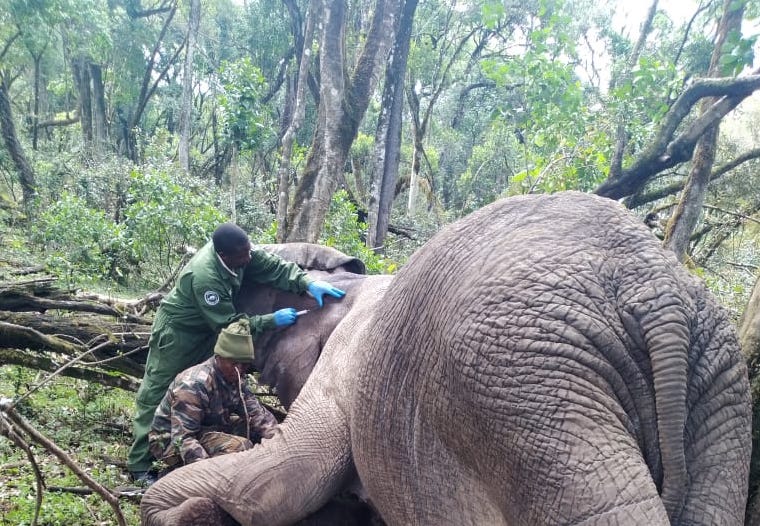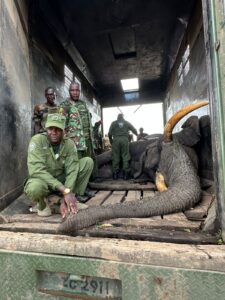Since 2020, Mara Elephant Project has been overseeing a team of community scouts in the Marmanet Forest. They monitor elephants in the area and coordinate with Kenya Wildlife Service (KWS) and our forces to increase protection by deterring illegal activities in the forest and responding to conflict. They’ve had success in 2022 with supporting the community to remove elephants from their farms; however, damage to crops and property have been increasingly reported. We’ve actually seen a connection between the Mau Forest and Marmanet Forest when collared elephant Vasco immediately traveled over 50 miles from the Mau to Marmanet after being collared in July 2019. The movement monitored by KWS, the Wildlife Research and Training Institute (WRTI) and MEP was entirely unexpected as elephants were not known to still move between these two separate geographical regions. Our ability to use the MEP leased helicopter to aerially monitor Vasco has helped increase our understanding of his movements and his home, the Marmanet Forest.
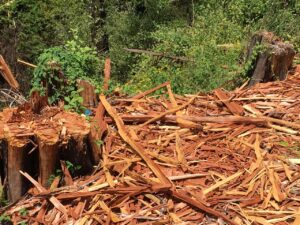 Through aerial and on the ground monitoring an alarming amount of illegal logging and charcoal operations inside the forest has been noted.
Through aerial and on the ground monitoring an alarming amount of illegal logging and charcoal operations inside the forest has been noted.
One of our goals in 2023 is to expand into the Marmanet Forest with a permanent ranger team. This will allow us to respond to alerts while we monitor the movement data from the collared elephants there. In response to increased conflict reported by the community from a large breeding her we collared a female elephant affectionally named “Bea” on the November 7 with KWS and WRTI in the northern portion of the Marmanet Forest. “Bea” is named after MEP’s Chairwoman Beatrice Karanja. We hope that Bea the elephant helps us keep an eye on Marmanet as Bea does with MEP. Elephant Bea resides in a herd of 30 and her collar will allow MEP and our partners to paint a more detailed picture of how elephants are using this important forest to increase not only the forest’s protection, but Bea’s as well.
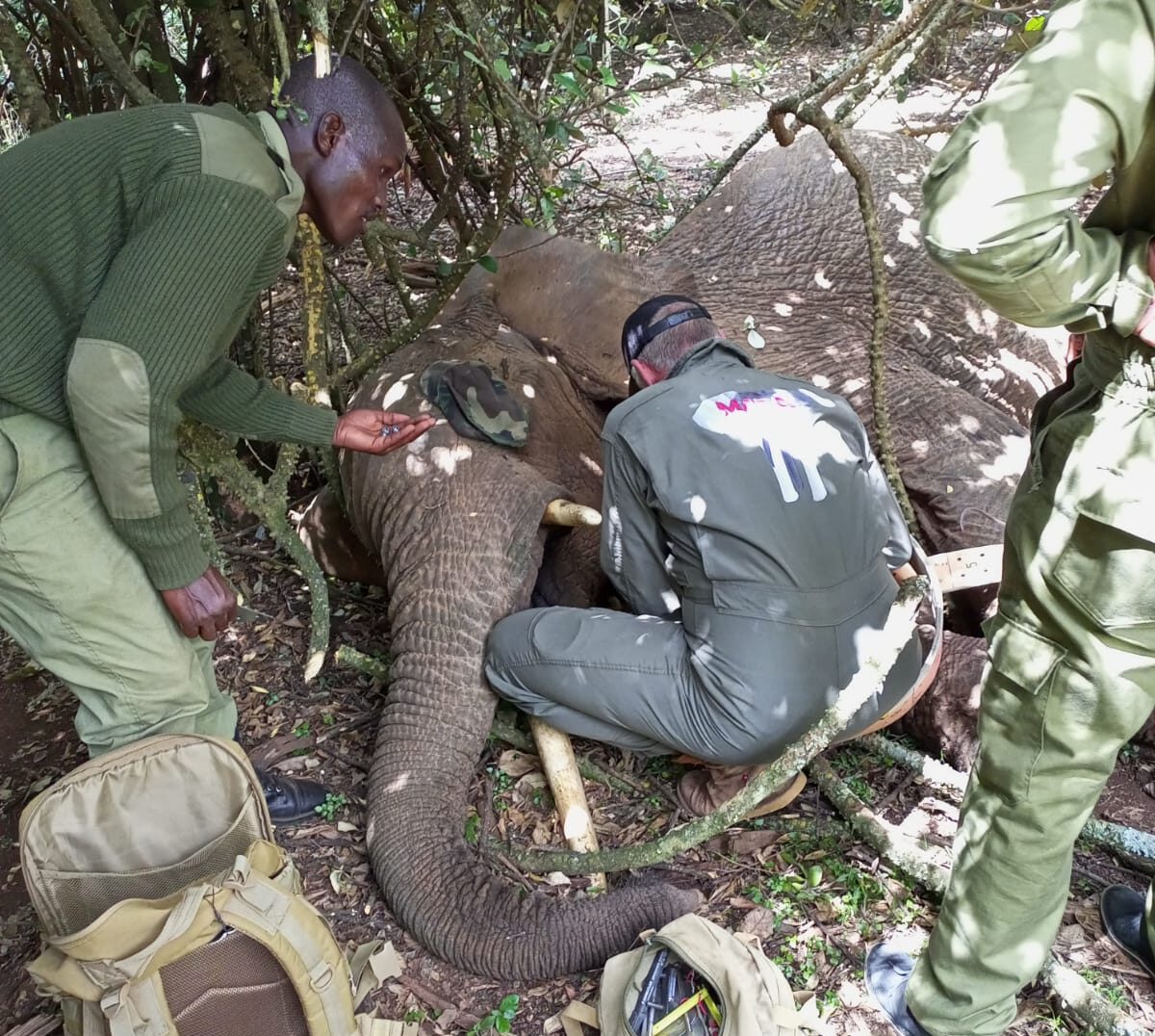
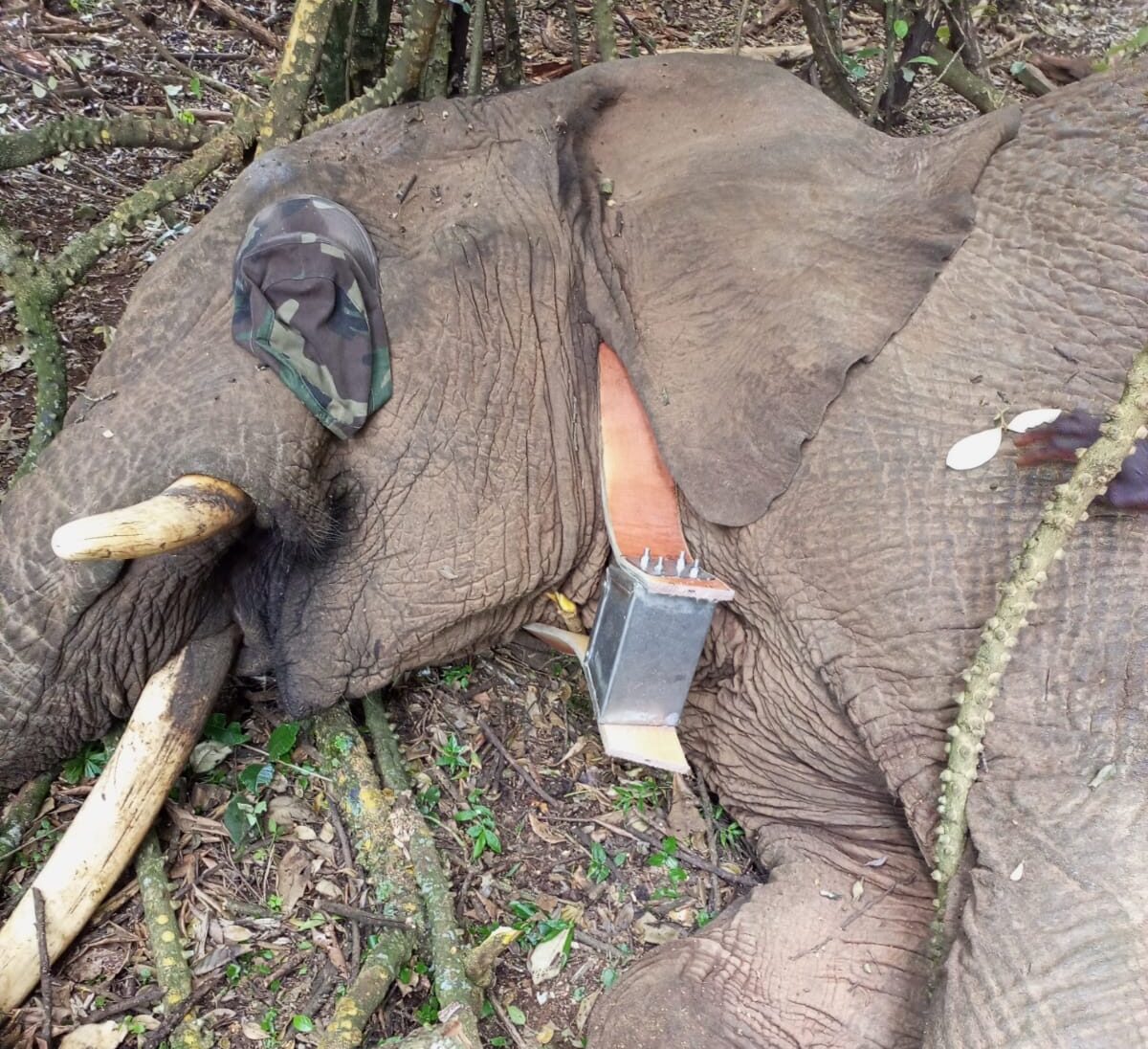
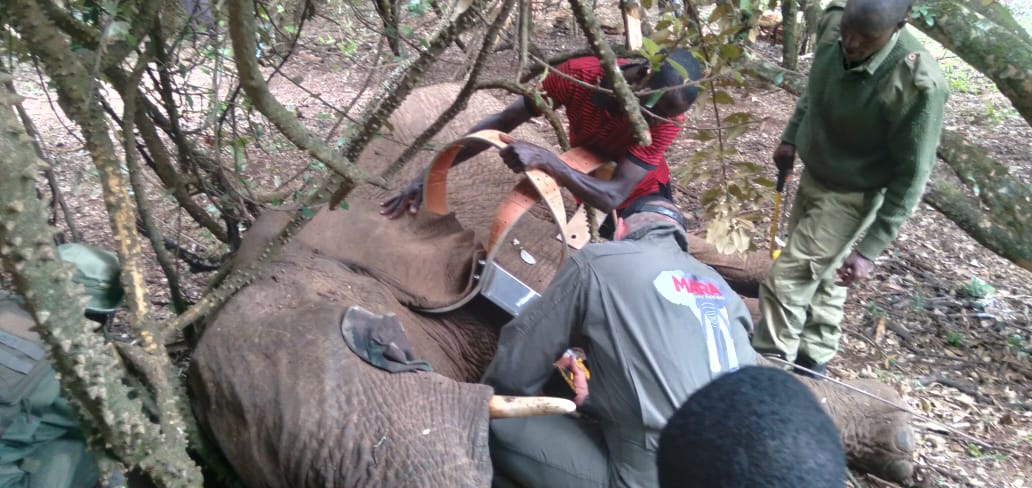
On November 26, the MEP mobile team were chasing a suspect in possession of poisoned arrows and targeting elephants. During the chase the suspect resisted arrest and MEP ranger Gideon was injured by the suspect and needed immediate first aid. After the suspect was apprehended, MEP rangers administered first aid to Gideon and transported him to a local hospital where he received treatment. He’s since made a full recovery and is already back on patrol and, thanks to the ranger’s quick response, elephants were not harmed during the attack. It’s been several years since MEP has recovered poisoned arrows alongside our government partners in the Mara.
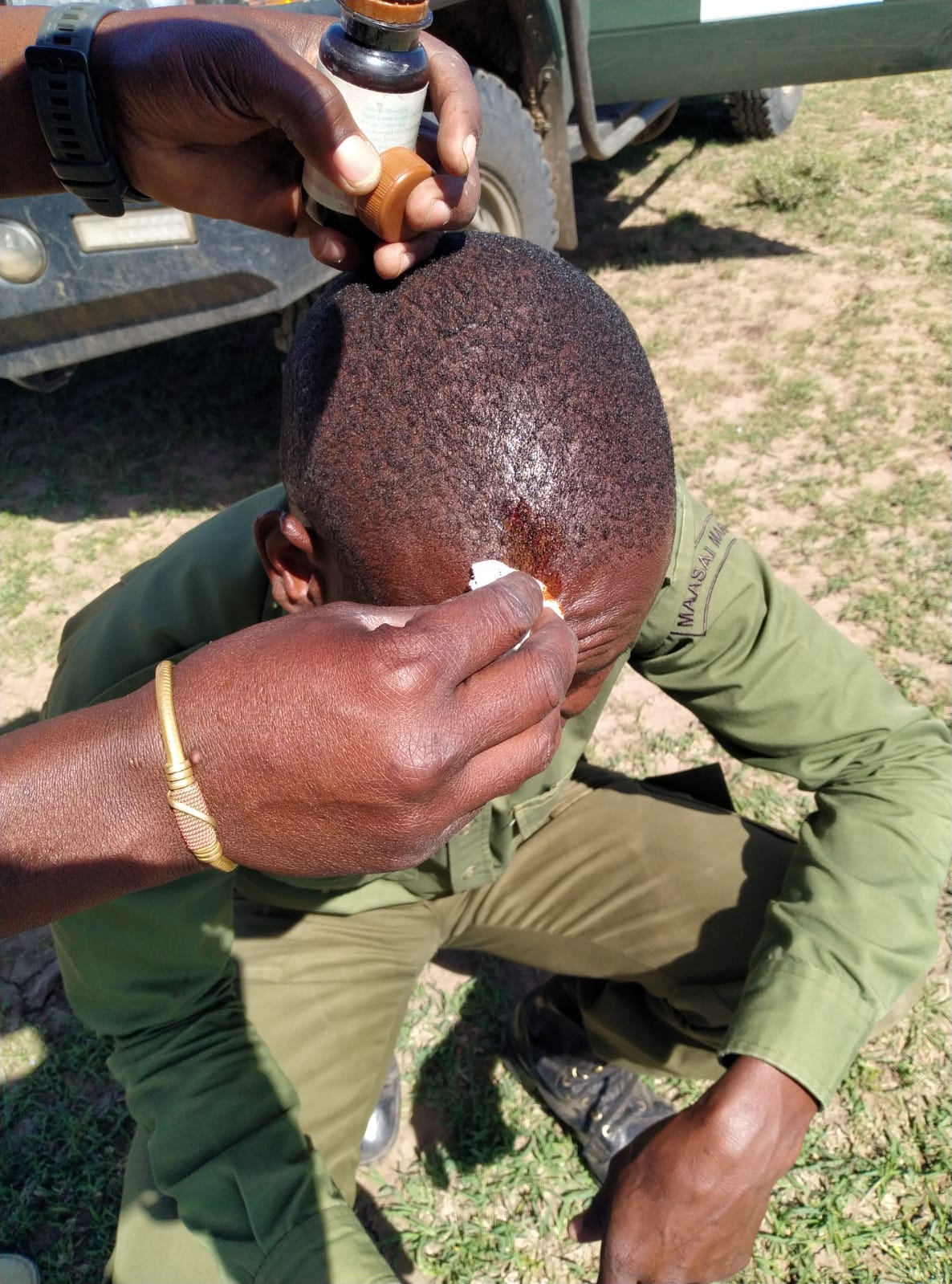
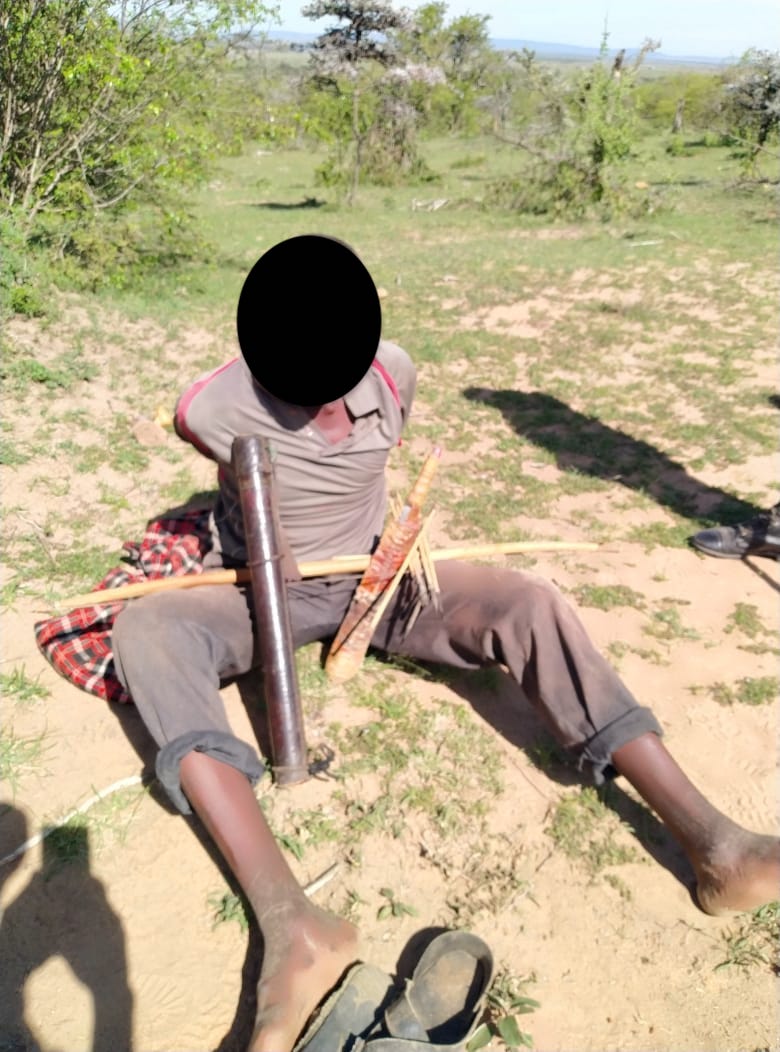
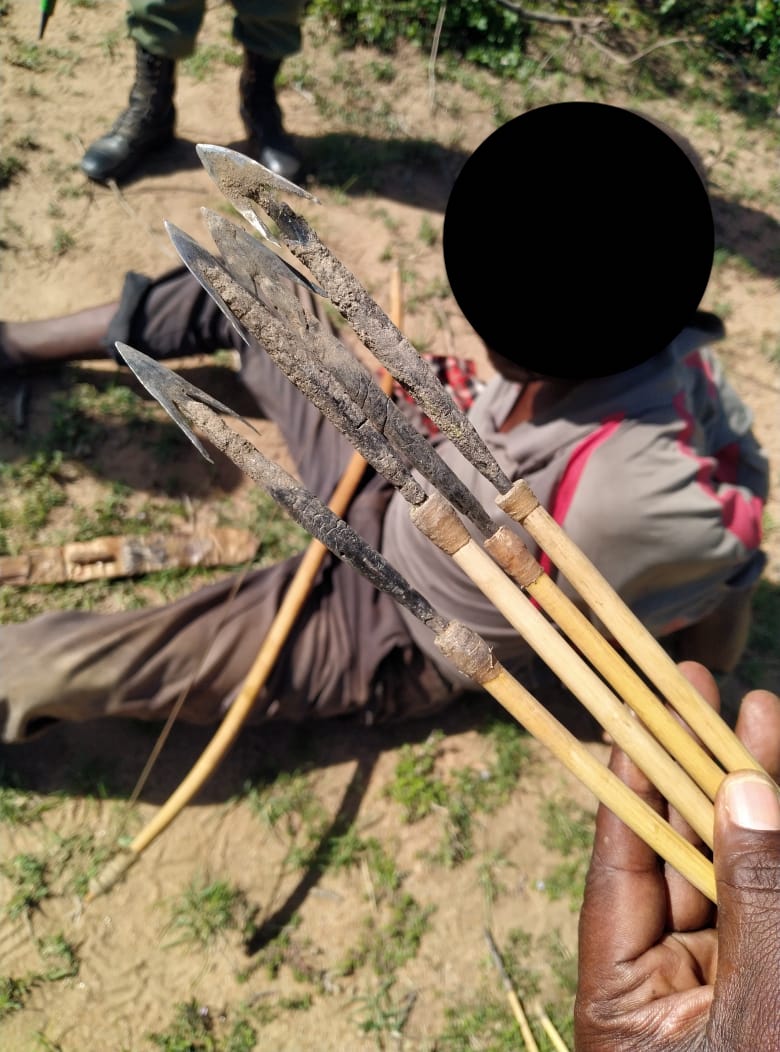

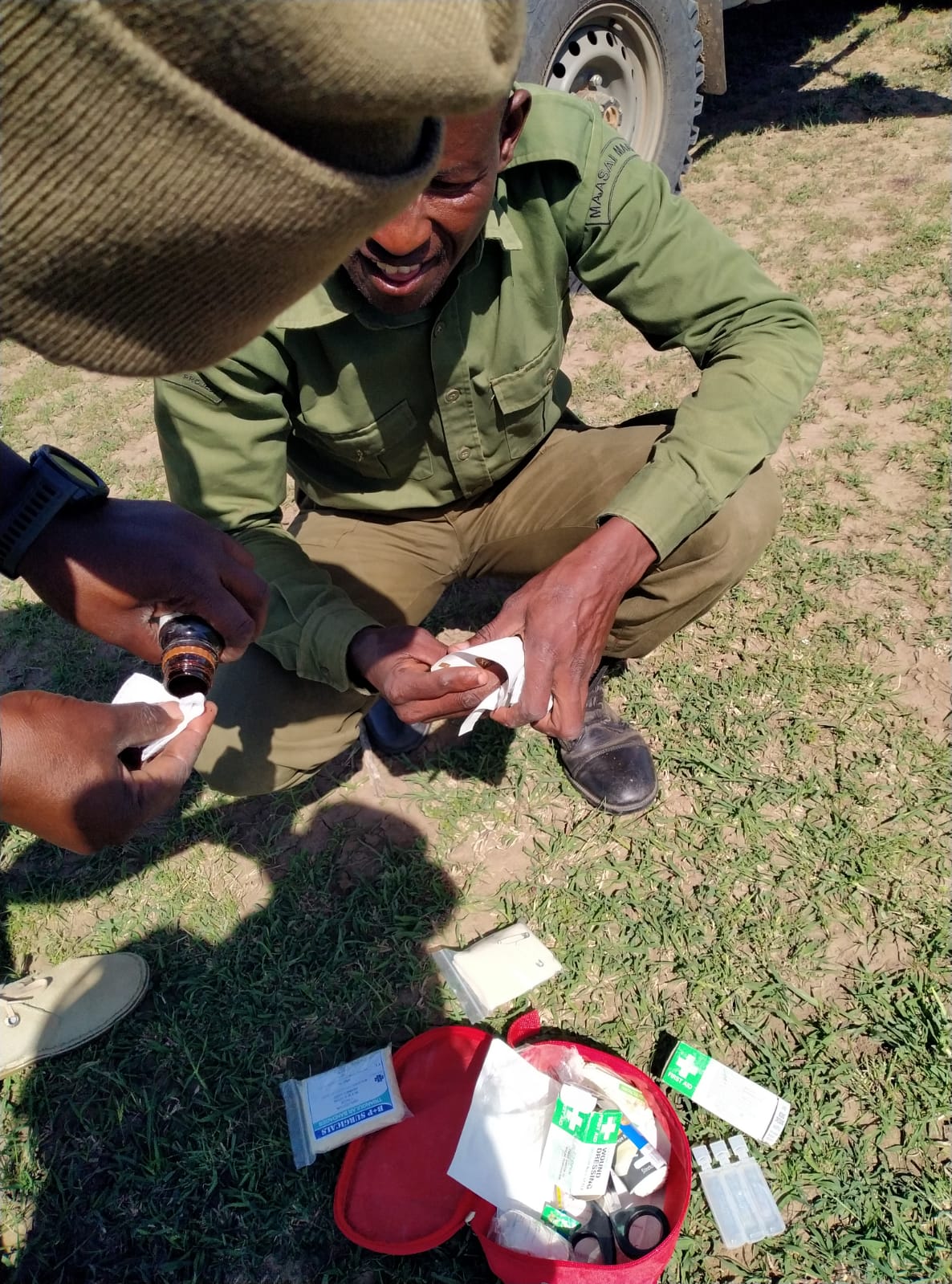

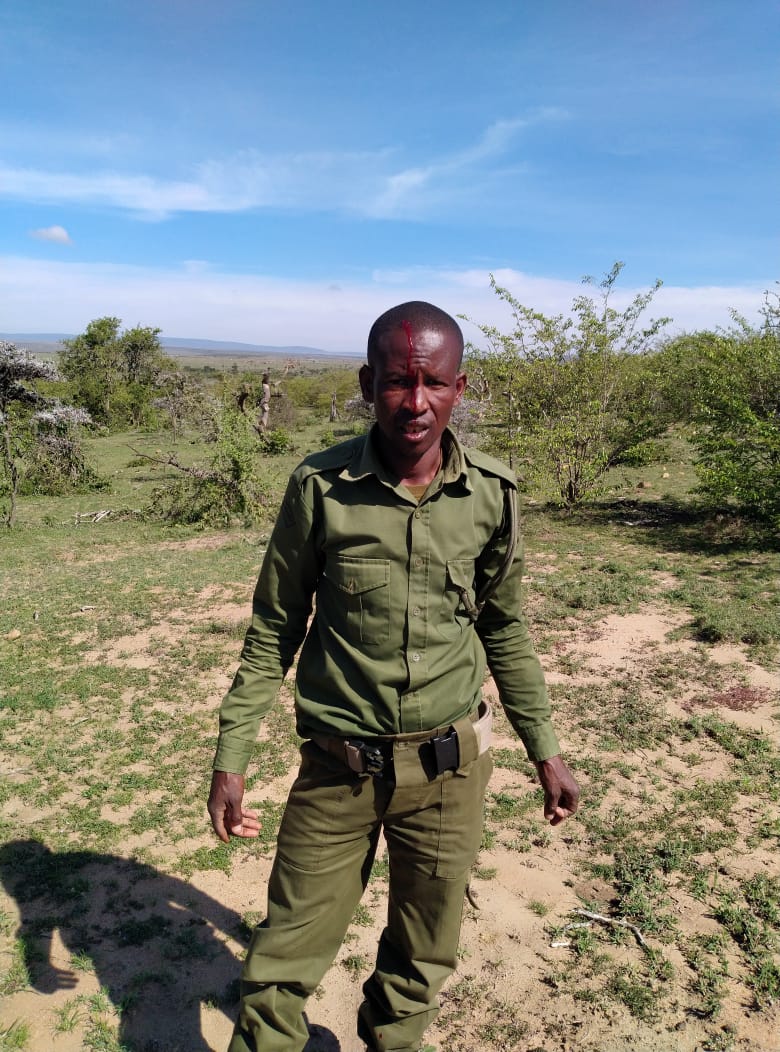
Combatting habitat destruction alongside KWS, Kenya Forest Service and the Bongo Surveillance Project is one of the important tasks for MEP rangers. In November, the “Charlie”, “Golf”, “Alpha”, “Echo”, “Kilo” and “Bravo” teams successfully confiscated 41 bags of charcoal, arrested 12 habitat destruction suspects and destroyed 36 kilns that on top of mitigating conflict incidents and combatting bushmeat poaching. These men and women are the backbone of our organization, and alongside our partners are combatting the threats facing ecologically important wildlife areas.
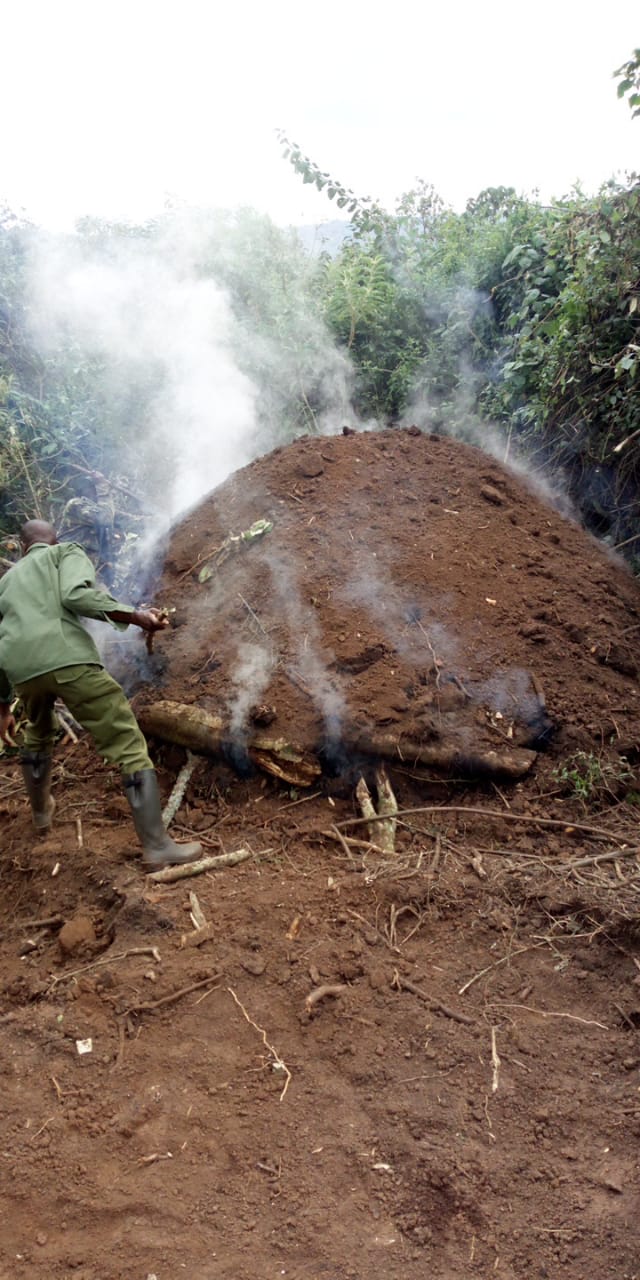


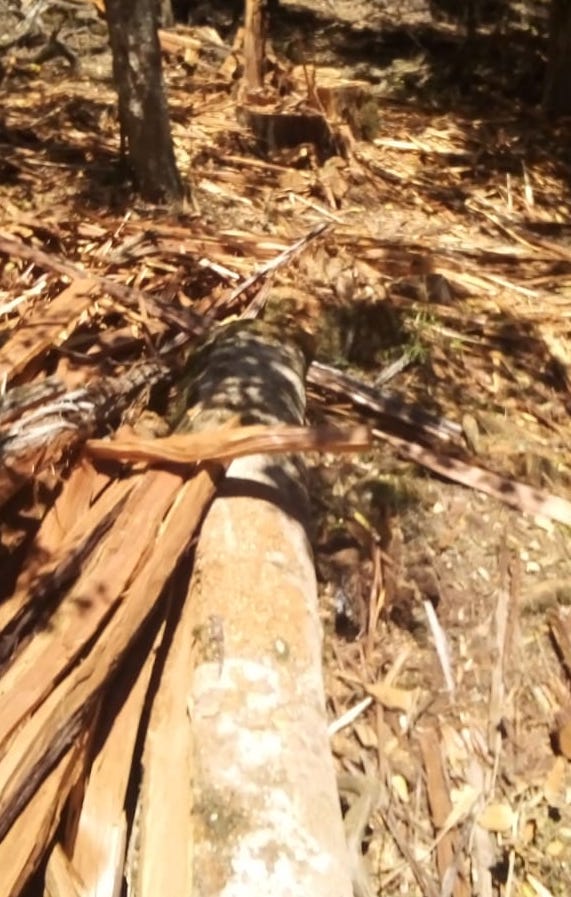
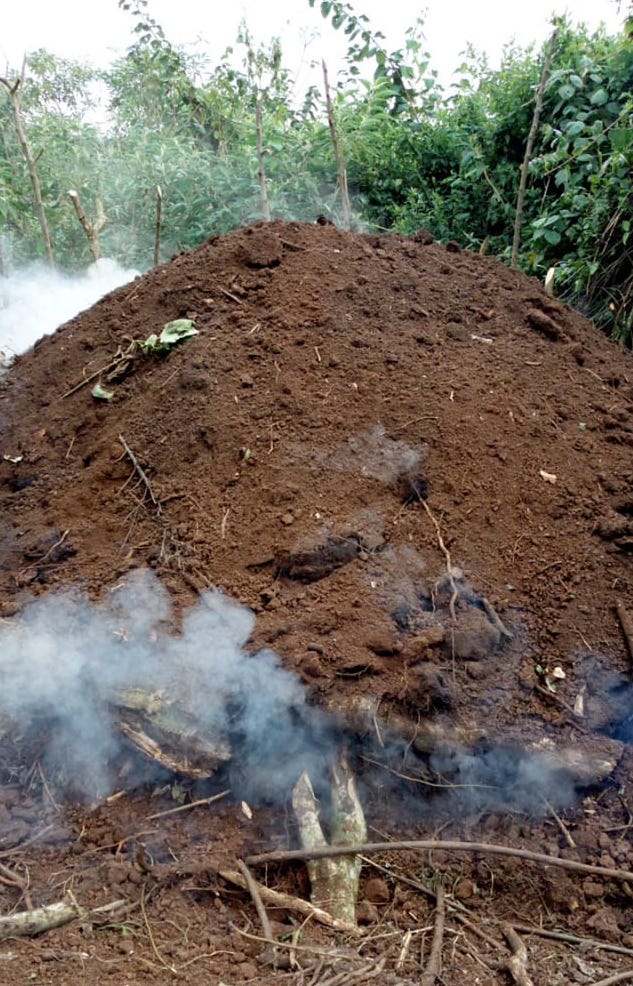

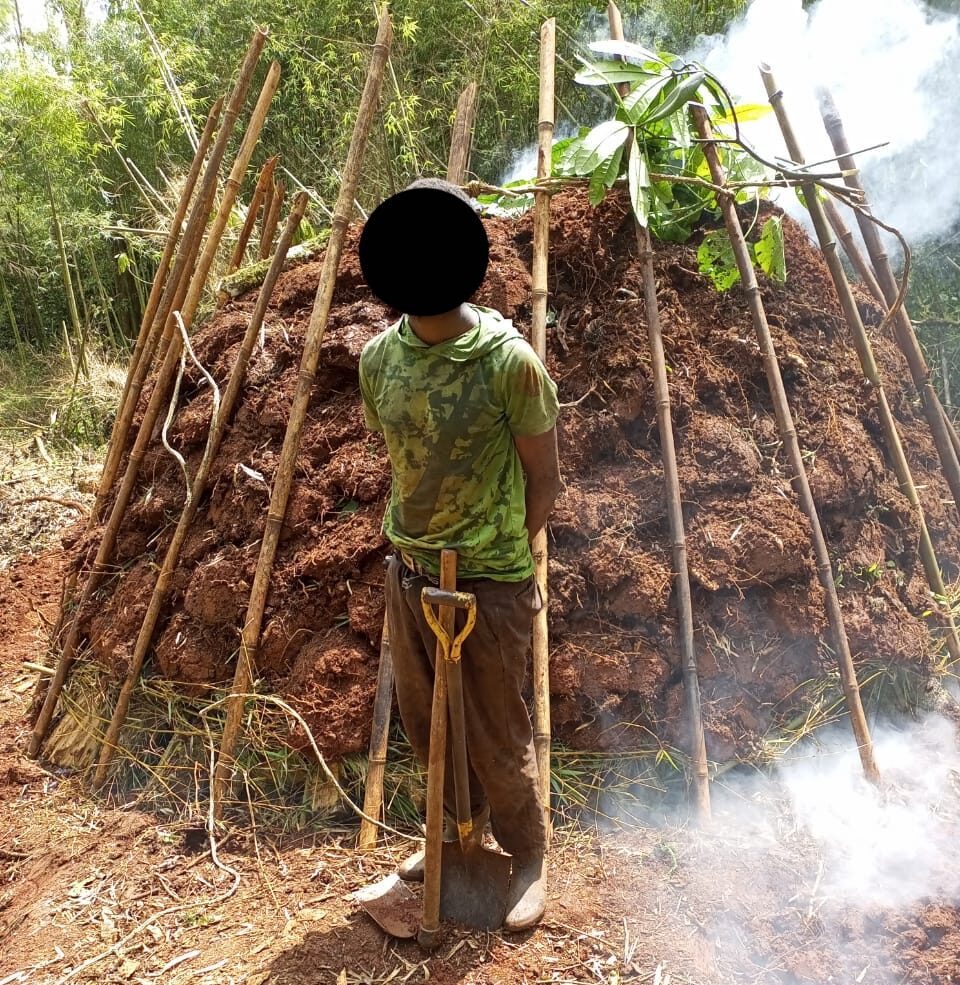
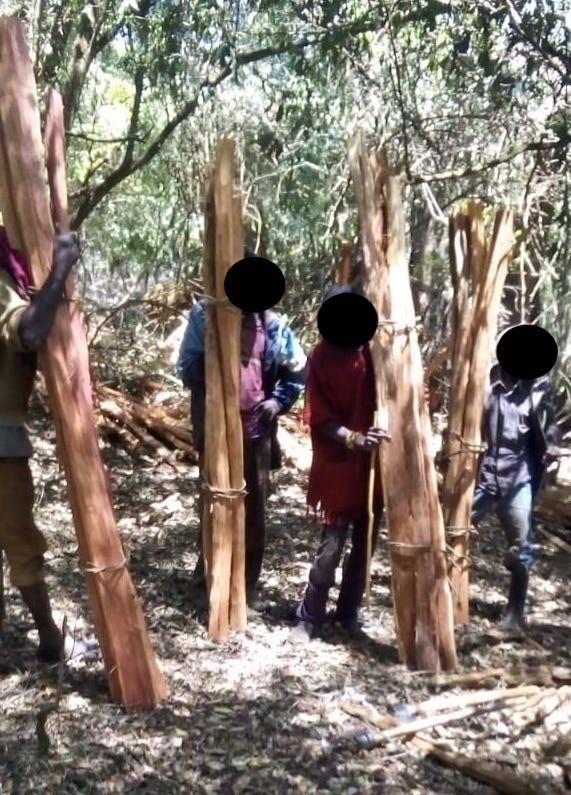
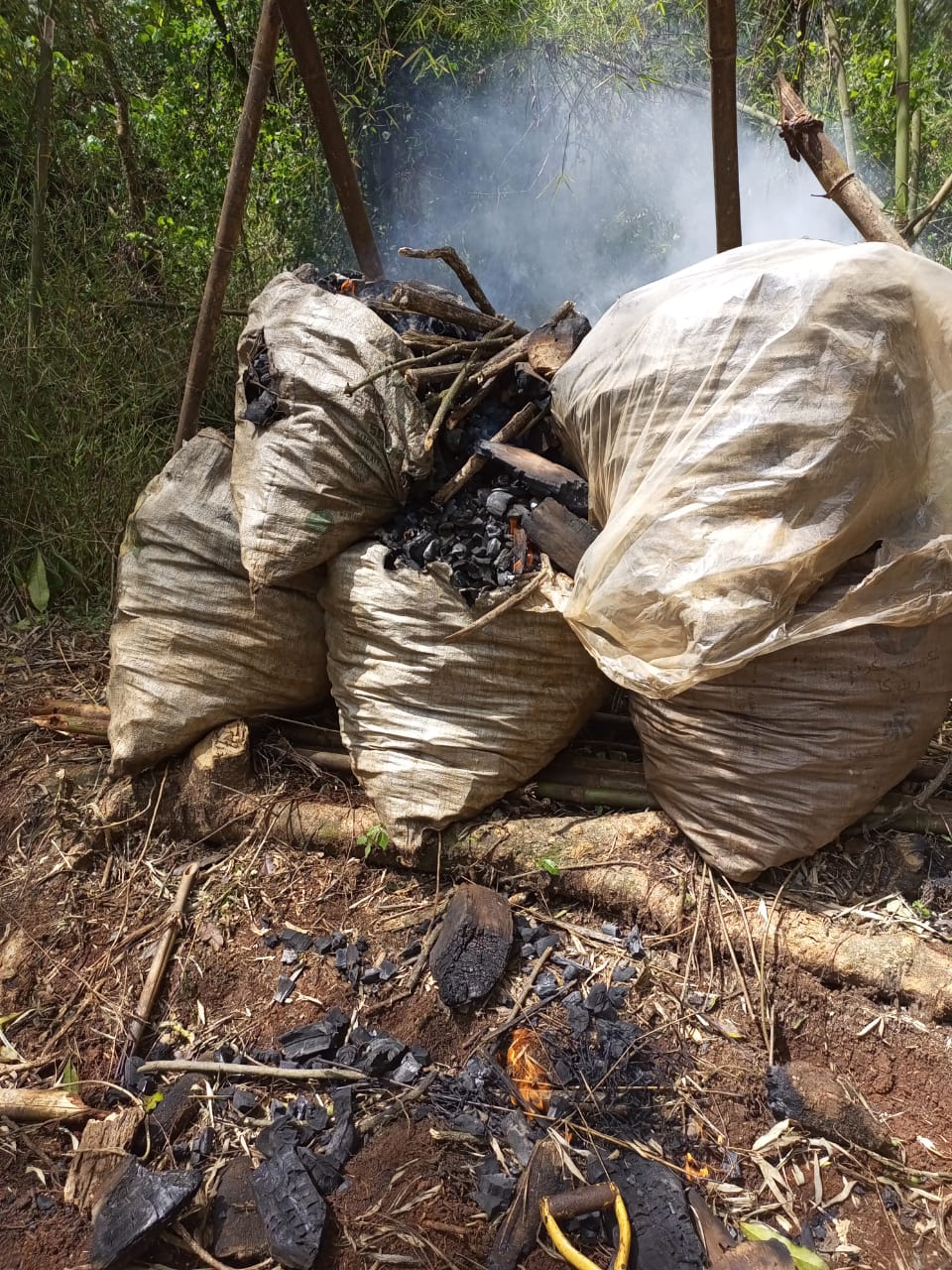
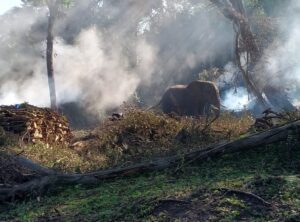 While monitoring three bulls in the Nyakweri Forest on November 21, the “Golf” team noted an elephant with an injury in need of immediate vet intervention. We called in our partners KWS Vet Dr. Ephantus Ndambiri with the Sheldrick Wildlife Trust (SWT) Mara Mobile Vet Unit and assisted them with treating the spear wound on the injured bull. A few days after his treatment, the rangers monitored him recovering alongside seven other elephants noting that he was looking to be healing well.
While monitoring three bulls in the Nyakweri Forest on November 21, the “Golf” team noted an elephant with an injury in need of immediate vet intervention. We called in our partners KWS Vet Dr. Ephantus Ndambiri with the Sheldrick Wildlife Trust (SWT) Mara Mobile Vet Unit and assisted them with treating the spear wound on the injured bull. A few days after his treatment, the rangers monitored him recovering alongside seven other elephants noting that he was looking to be healing well.
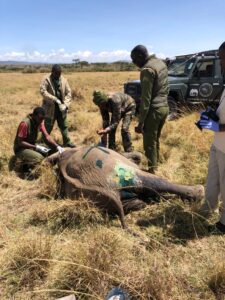 An elephant calf was reported with an injury in need of immediate vet intervention. MEP rangers alongside Assistant Senior Warden Maitai responded to assist our partners with the treatment. The KWS Vet Dr. Ephantus Ndambiri from the SWT Mara Mobile Vet Unit treated the spear wound on the young bull’s right rear leg and he was back on his feet and reunited with his herd after treatment.
An elephant calf was reported with an injury in need of immediate vet intervention. MEP rangers alongside Assistant Senior Warden Maitai responded to assist our partners with the treatment. The KWS Vet Dr. Ephantus Ndambiri from the SWT Mara Mobile Vet Unit treated the spear wound on the young bull’s right rear leg and he was back on his feet and reunited with his herd after treatment.
In November, MEP rangers alongside government partners arrested one suspect with 13 kg of ivory, destroyed 36 kilns, 47 bags of charcoal, recovered 150 pieces of timber, arrested 12 habitat destruction suspects and recovered five snares. There were 29 total incidents of conflict mitigated in November, the second highest month in 2022.
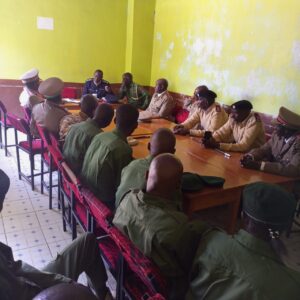 The recently launched “Kilo” ranger team was graciously invited to celebrate Mashujaa Day (Heroes Day) alongside the community and operational partners to discuss illegal logging activities taking place in their area of patrol. It was a great chance for the team to speak with the community leaders directly about the impact of logging at the forest’s edge. MEP rangers were grateful for the opportunity to meet and speak directly with the assistant county commissioner and community leaders to celebrate their work as conservation heroes.
The recently launched “Kilo” ranger team was graciously invited to celebrate Mashujaa Day (Heroes Day) alongside the community and operational partners to discuss illegal logging activities taking place in their area of patrol. It was a great chance for the team to speak with the community leaders directly about the impact of logging at the forest’s edge. MEP rangers were grateful for the opportunity to meet and speak directly with the assistant county commissioner and community leaders to celebrate their work as conservation heroes.
In November, MEP rangers covered a distance of 1,180 km on foot and 12,845 km by car in the GME. MEP rangers covered a distance of 82 km on foot in Marmanet.
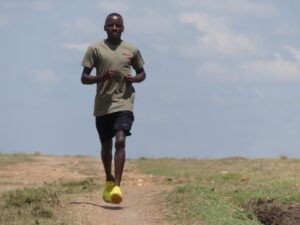 MEP ranger Stanley Momposhi trained in November for the Ultra MARAthon. The marathon is a race through the amazing Maasai Mara all to raise money for MEP, Africa Mission Services and local conservancy rangers.
MEP ranger Stanley Momposhi trained in November for the Ultra MARAthon. The marathon is a race through the amazing Maasai Mara all to raise money for MEP, Africa Mission Services and local conservancy rangers.
MEP is honored to have famous wildlife photographer Jeffrey Wu as a MEP Image Ambassador, which was announced in November. Jeffrey is a Canadian professional wildlife and nature photographer accredited by the Professional Photographers of Canada, a Kenya Tourism Board brand partner and a commercial photographer contracted by Nikon. Jeffrey became a professional wildlife photographer in 2013 shortly after his first trip to Kenya. Born and raised in Shanghai, China, Jeffrey started taking photos at the age of 7, under the direction of his mother, a professional portrait photographer. Jeffrey specializes in African wildlife photography and spends 10 months a year in Kenya and other African countries capturing their beauty. His images and articles have been published in more than 120 publications worldwide.
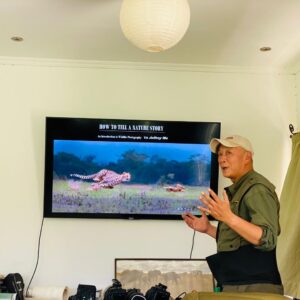 We were delighted to host him at headquarters in the Mara in November where he went out with rangers and researchers, interviewed staff and graciously hosted a photography class for any MEP staff interested. Conservation Officer Wilson Sairowua and several members of the MEP long-term monitoring team attended to learn more from Jeffrey about wildlife storytelling through the camera lens.
We were delighted to host him at headquarters in the Mara in November where he went out with rangers and researchers, interviewed staff and graciously hosted a photography class for any MEP staff interested. Conservation Officer Wilson Sairowua and several members of the MEP long-term monitoring team attended to learn more from Jeffrey about wildlife storytelling through the camera lens.
Most of the MEP team had the opportunity to join our close partner EarthRanger at a user conference held in Kenya in November. The conference was attended by over 300 people from organizations around the globe. MEP was proud to be an early adopter of this revolutionary technology as Director of Research and Conservation Dr. Jake Wall is a co-founder alongside Ted Schmitt and Paul Allen. Jake gave a presentation on MEP’s latest bespoke technology Ecoscope and it was standing room only. CEO Marc Goss participated in the Forest Management discussion and Conservation Officer Wilson Sairowua participated in the Communities in Conservation discussion. We were extremely proud to join our partners from near and far at the conference and want to thank KWS, WRTI and EarthRanger for bringing us all together to learn more about the amazing work undertaken in conservation.
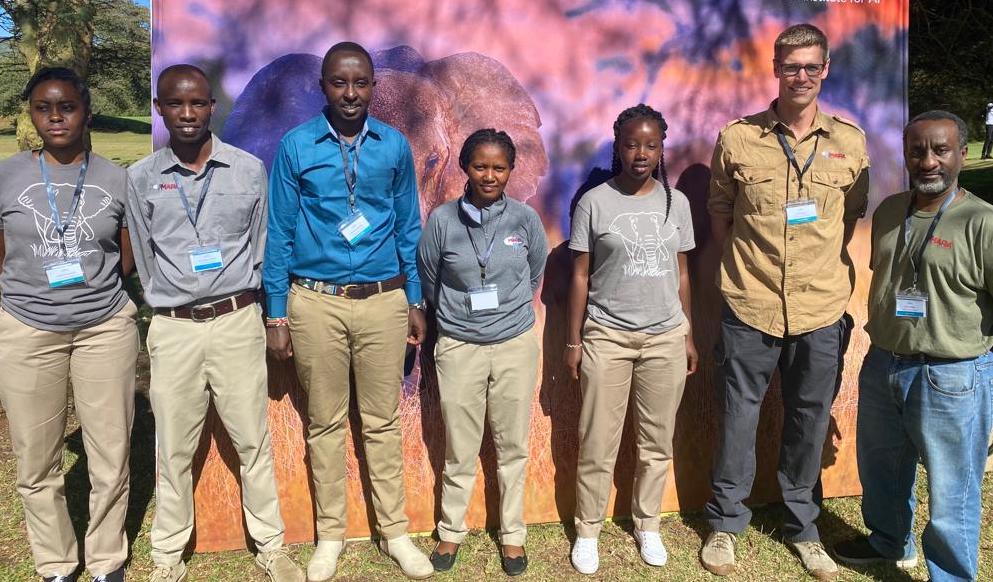
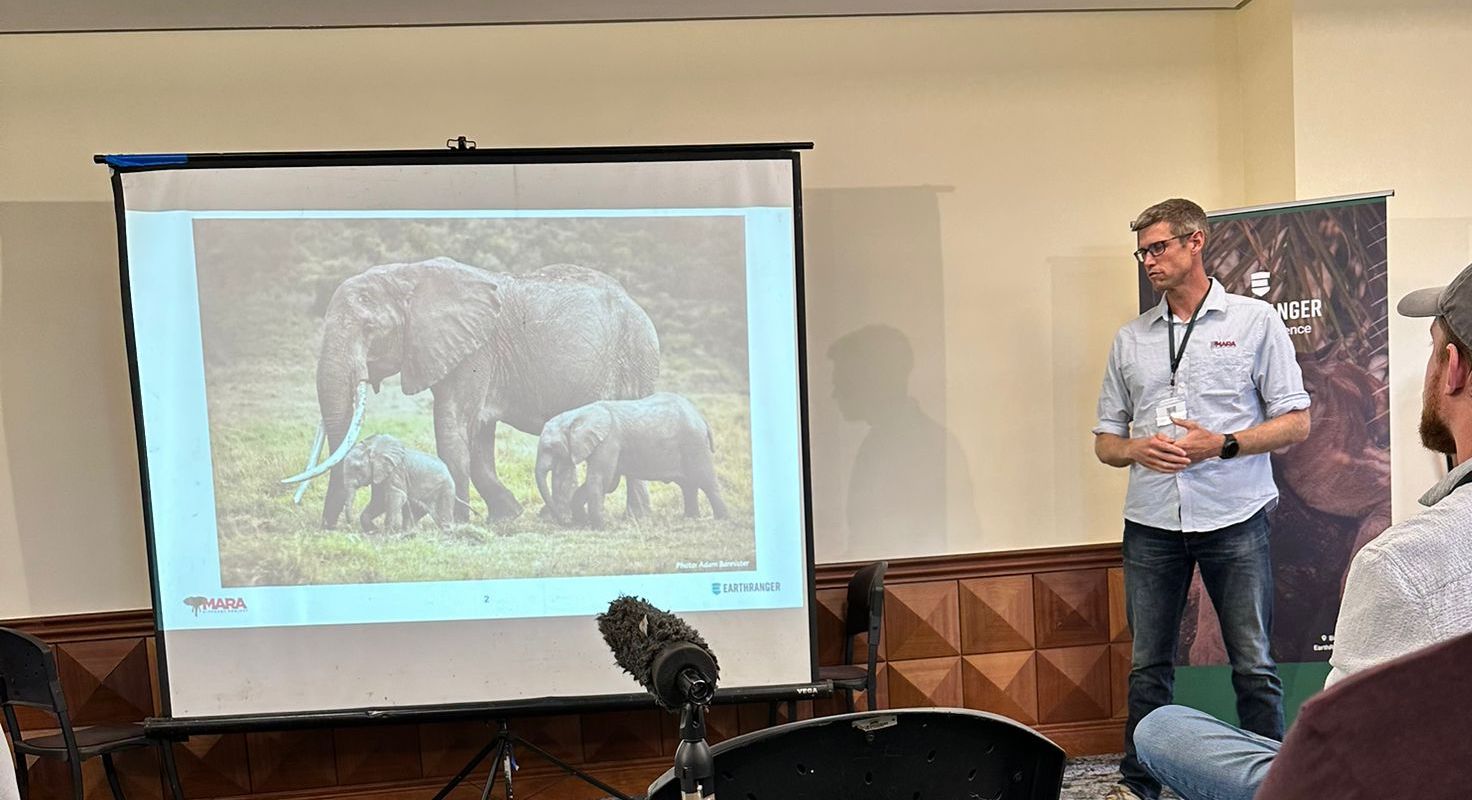

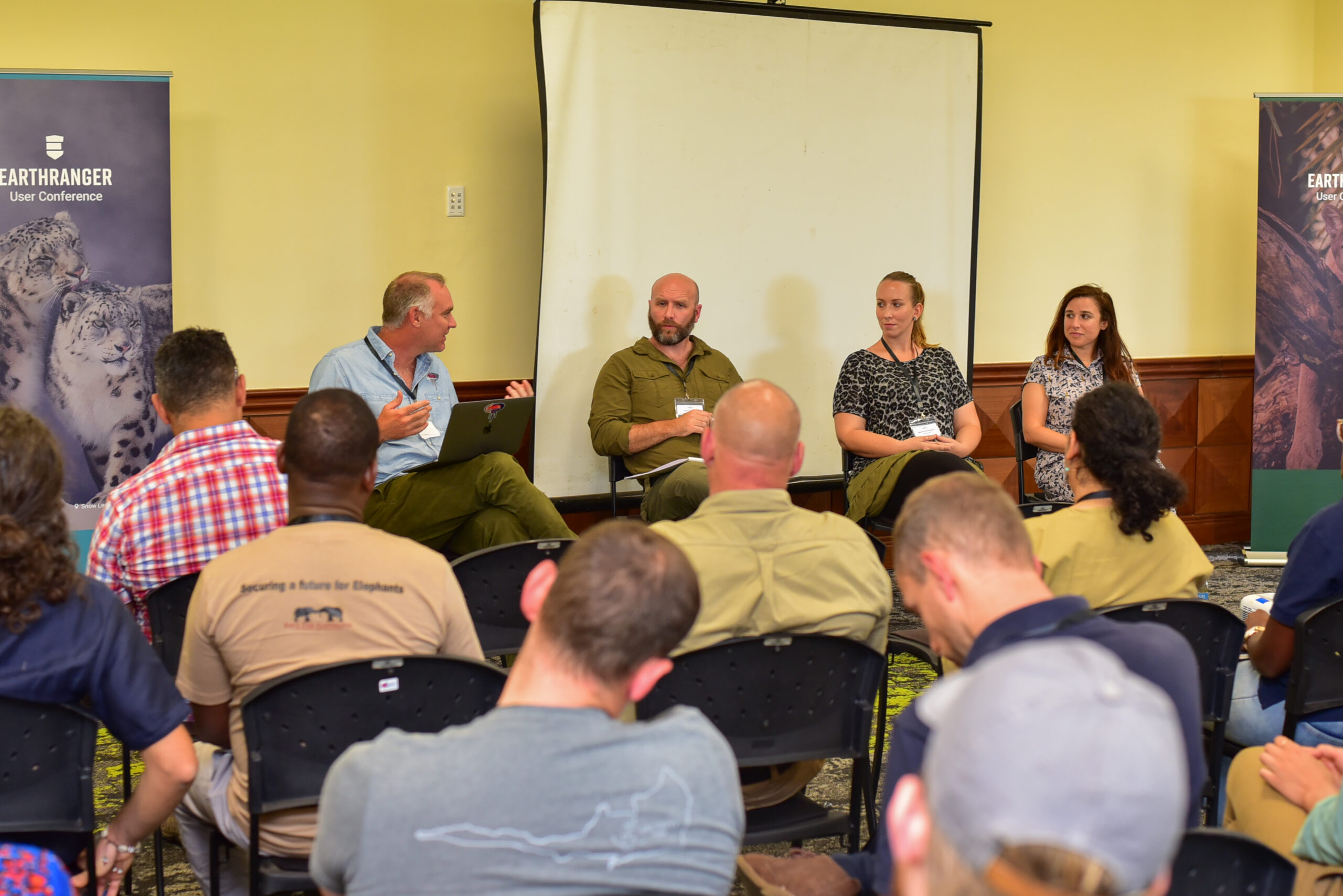
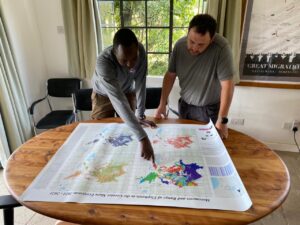 After the conference, members of the EarthRanger mobile development team joined us at MEP’s headquarters to collaborate on the newly launched ER Mobile app, and we had the pleasure of hosting EarthRanger CEO Jes Lefcourt.
After the conference, members of the EarthRanger mobile development team joined us at MEP’s headquarters to collaborate on the newly launched ER Mobile app, and we had the pleasure of hosting EarthRanger CEO Jes Lefcourt.
Dr. Jake Wall participated on the selection committee for the 2022 Conservation Tech Awards granted by EarthRanger. Congratulations to Club Arribada and MoveApps for being the winners announced in November of the $15,000 grants to help accelerate innovative and impactful work in wildlife and ecological conservation.
MEP Monthly Report November 2022
Finally, we wanted to end the November report with a rare sighting. Collared elephants Chelsea and Natasha were monitored by the MEP mobile ranger team in a herd of almost 100 elephants. Chelsea was seen nursing her calf and Natasha was enjoying a black acacia. Herds this size are rare and most likely several family groups temporarily joining together.
